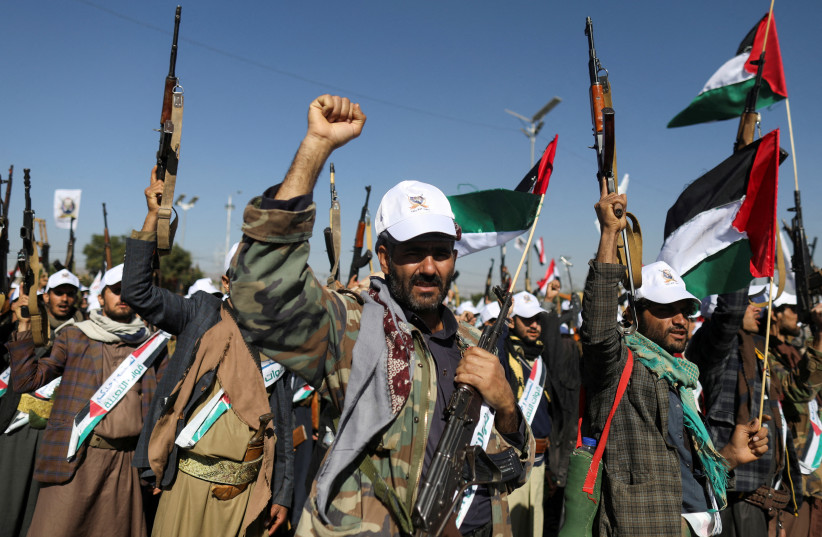Israel and Hezbollah issued threats on Tuesday over whether the IDF must complete its withdrawal from southern Lebanon 60 days after the November 27 ceasefire. Israel insists there is wiggle room depending on conditions and violations on the ground.
Last week, the IDF and government officials began saying that the 60-day number was not sacred. They said if the Lebanese military was moving slower than expected in exerting control over southern Lebanon or if Hezbollah carried out too many ceasefire violations, then the withdrawal could be drawn out past the deadline for days, weeks, and possibly even months.
Hezbollah is committed to its 60-day ceasefire with Israel, but “day 61 will be different,” Mahmoud Komati, the deputy chief of Hezbollah’s Political Council, told Lebanon’s Al Manar television late Monday. Hezbollah would return to action against the IDF if Israel does not withdraw from southern Lebanon, he said.
Hezbollah would not allow any local or foreign party to interfere with its weapons rebuilding program, Komati said.
Hezbollah still had its stockpile of rockets, missiles, and drones, he said, adding that targeting Tel Aviv had brought Israel to the negotiating table.

Confronted with the possibility of Hezbollah returning to firing hundreds of rockets every day toward the home front, Israeli sources said statements that the 60th day was not sacred as a deadline for a complete withdrawal from southern Lebanon did not mean that sticking to the deadline was impossible.
Israeli sources have not said definitively that the IDF would ignore the 60-day deadline; rather, they have said conditions on the ground have been moving slower than expected, and that could have implications for a slower IDF withdrawal.
Israeli statements merely reflected that when Lebanon’s army does not take over an area from the IDF or when Hezbollah tries to penetrate southern Lebanon, the danger to Israeli forces and citizens increases, informed sources said.
Once this danger increases, it logically makes less sense for IDF forces to complete the withdrawal, they said.
Another alternative was that the IDF could withdraw from nearly all of southern Lebanon but hold onto a very minimal security zone until it felt the Lebanese army and Hezbollah were both honoring their obligations under the ceasefire, the sources said.
Such a minimalist position would likely require a public vote by the security cabinet, but it would make it harder for Hezbollah to justify a sudden major escalation, they said.
Meanwhile, French Foreign Minister Jean-Noel Barrot and Defense Minister Sebastien Lecornu on Monday met with Joseph Aoun, commander of the Lebanese Armed Forces. On Tuesday, they met with UNIFIL troops near the Israel-Lebanon border.
While progress has been made by the various sides to the ceasefire, its implementation remains incomplete, people familiar with the matter told The Jerusalem Post.
Ceasefire violations
So far, there has been criticism of both Israel and Hezbollah regarding ceasefire violations. However, Israel has refrained from targeting senior Hezbollah officials, and Hezbollah has refrained – other than in one incident in the days after the ceasefire – from firing into Israel.
In Gaza, the IDF and Shin Bet (Israel Security Agency) killed Anas Muhammad Saadi Masri, commander of Palestinian Islamic Jihad’s rocket unit in the northern sector, the IDF reported Tuesday.
“An IAF aircraft, guided by intelligence from the Military Intelligence Directorate, the Shin Bet, and Southern Command, struck and killed Masri earlier this month,” it said.
Masri was “a significant figure responsible for executing numerous terrorist operations and managing and directing actions by the organization that targeted Israeli civilians and IDF soldiers,” the IDF said.
Since October 7, Masri had been actively commanding rocket fire from northern Gaza into Israeli border communities, it said.
“Prior to the strike, extensive measures were taken to minimize civilian casualties, including the use of precision weaponry, accurate intelligence, and aerial surveillance... We will continue to strike anyone who promotes or engages in terrorism against Israeli citizens and will work to achieve the objectives of the war,” the IDF said.
Late Tuesday night, the IDF said it had killed Abd al-hadi Tzavach, the Nukhba commander of the western Khan Yunis battalion, who also was among the leaders of the invasion and killing of Israelis at Nir Oz during the October 7 massacre.
Critics of Israel have said Israeli airstrikes continue to kill many Palestinian civilians and that the IDF is not being transparent about those numbers.
Supporters of Israel blame the casualties on Hamas using human shields.
The Nahal Brigade, which has spent several months fighting Hamas in Rafah, southern Gaza, is being given a period to refresh itself, and the Kiryati Brigade will redeploy in that area, the IDF said Tuesday.
Hamas fired a rocket from southern Gaza on Tuesday, the IDF said, adding that it fell harmlessly after an Iron Dome apparently did not hit it.
The US and UK struck numerous Houthi military locations in Yemen on Tuesday, according to reports. Late Monday night, the Houthis fired a ballistic missile toward Israel that was shot down by Israel.
A grounded Yas’ur helicopter (Sikorsky CH-53) was tipped on its side by strong winds, causing damage to the helicopter, the IDF said Tuesday. No injuries were reported, and the helicopter will undergo repairs and return to service at a later time, it said.
A commission of inquiry has been established to investigate the incident, and findings will be presented to the commander of the IAF, the IDF said.
Jerusalem Post Staff contributed to this report.
